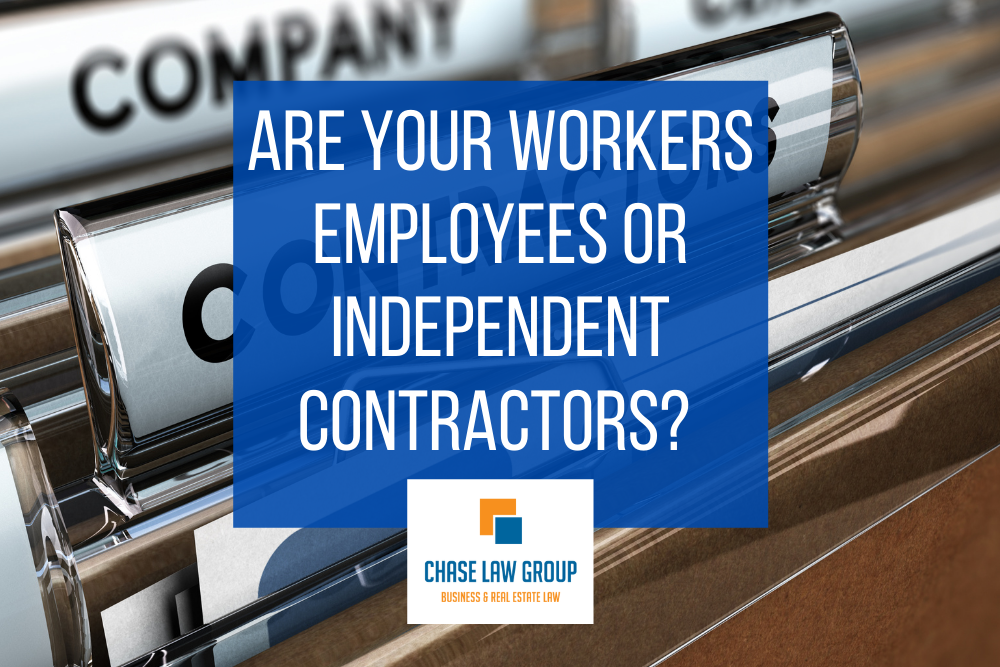Are your workers employees or independent contractors?
By Admin October 12, 2021 Category: Business Law

Based on the current laws in place, it’s critical that employers are properly classifying individuals providing services as either employees or independent contractors.
Generally speaking, if the business has the right to control the details of how the worker’s services are performed or when and how they will be done, that individual is considered an employee. Whereas, an independent contractor is typically an individual in an independent business, profession or trade who offers their services to the public.
The relationship between the worker and the business can be established by looking at the following categories:
- Does the company control or have the right to control what the worker does and how the worker does the job?
- Does the business direct or control the financial and business aspects of the worker’s job? (i.e., are expenses, supplies or how the worker is paid controlled by the payer?)
- Is the work performed considered a key aspect of the business?
- Is there a written employment agreement and are employee-type benefits provided?
What happens if a worker is misclassified?
Generally, an employer must withhold and pay taxes (income tax, Social Security and Medicare, unemployment). If a worker is misclassified as an independent contractor, it negatively affects the employee since the employer’s share of taxes is not paid and the employee’s share is not withheld. Businesses that misclassify an employee could be held liable for employment taxes for that worker. If a worker believes they have been incorrectly classified as an independent contractor, they can report their share of uncollected taxes due on their compensation. Employers have an optional program that provides them with an opportunity to reclassify their workers as employees for future tax periods with partial relief from federal employment tax liability for past non-employee classifications through the Voluntary Classification Settlement Program. Certain eligibility requirements apply.
What is a self-employed worker?
Any of the following may qualify one as self-employed:
- The individual conducts a business, trade or profession as a sole proprietor or independent contractor.
- The individual is part of a partnership that carries on a trade or business.
- The individual is in business for themself.
Generally, self-employed individuals are required to file an annual tax return and to pay estimated taxes quarterly, and must pay self-employment tax (Social Security and Medicare) as well as income tax. If they use part of a home for business, self-employed taxpayers may be able to claim the home office deduction.
How is the ‘gig’ or ‘sharing’ economy worker taxed?
The gig economy − also called sharing economy or access economy−is activity where people earn income providing on-demand work, services or goods.
The sharing or gig economy is where individuals earn income providing services, work or goods on-demand. Any income earned from gigs whether it be from temporary, part-time or side work or paid in any form such as cash, virtual currency, property or goods must be reported on a tax return.
For more information and help, the IRS has a resource page for Self-Employed Individuals.
NOTE: This is not an exhaustive list of all of the rules that should be applied when classifying employees. Please be sure to contact us at Chase Law Group to get clarification about your employee vs. independent contractors, and be sure to contact a qualified tax advisor to properly handle how to file, report and make tax payments based on your particular situation.

